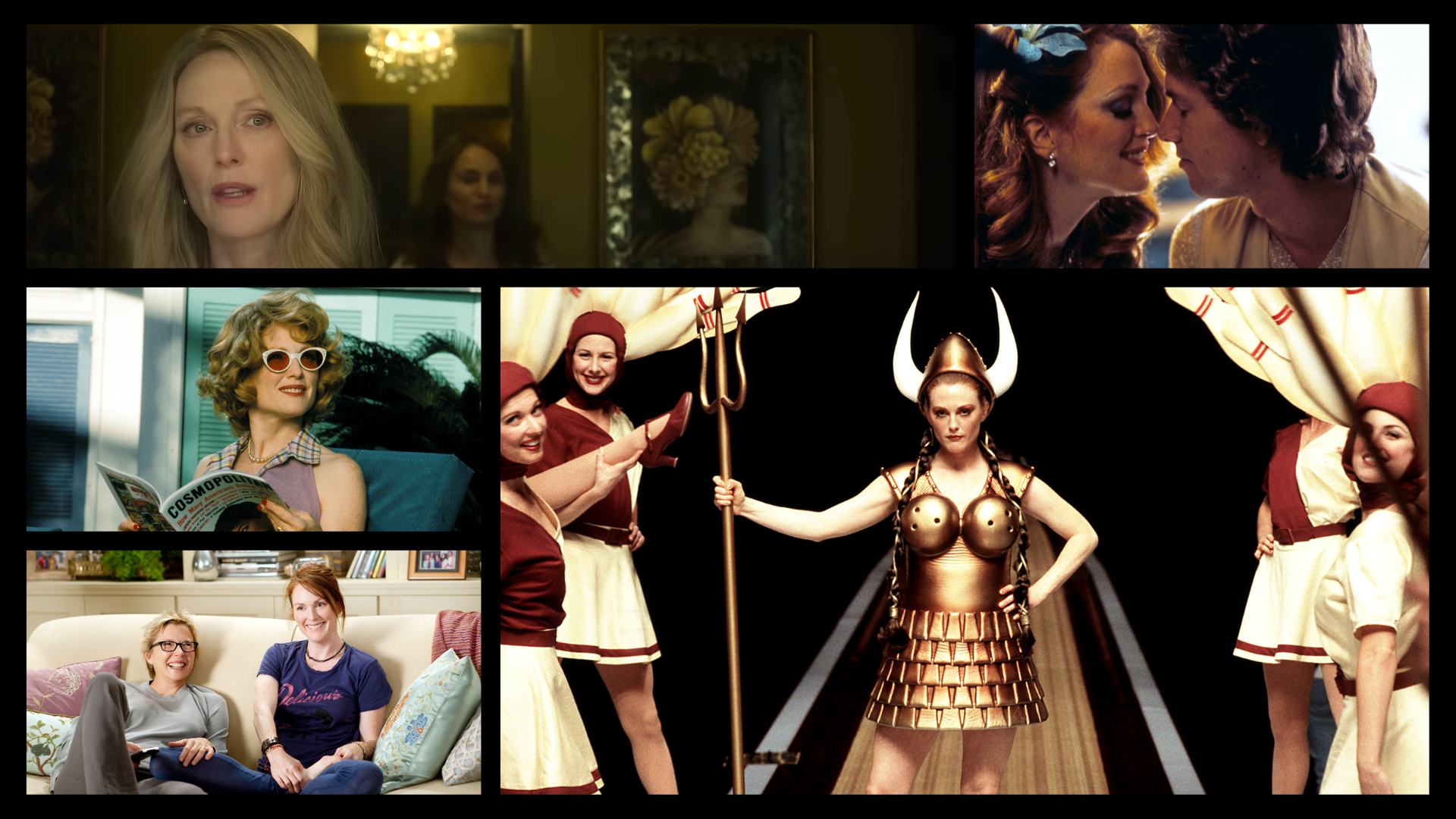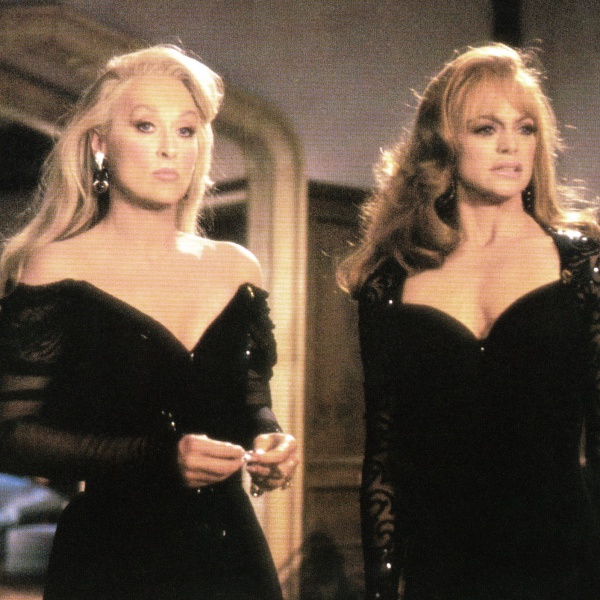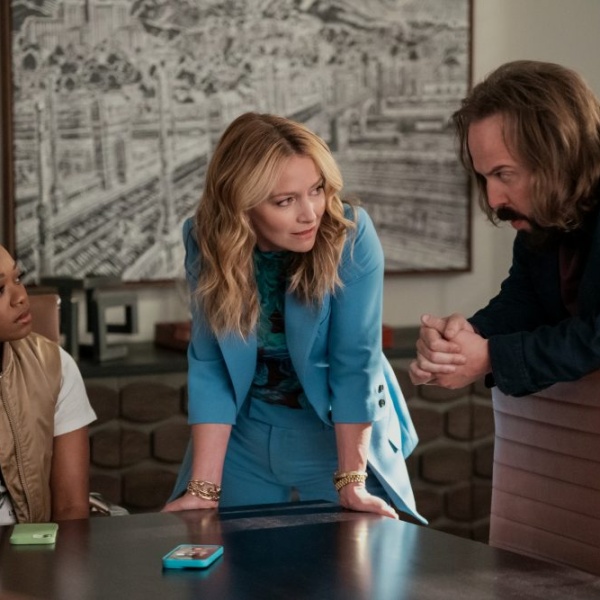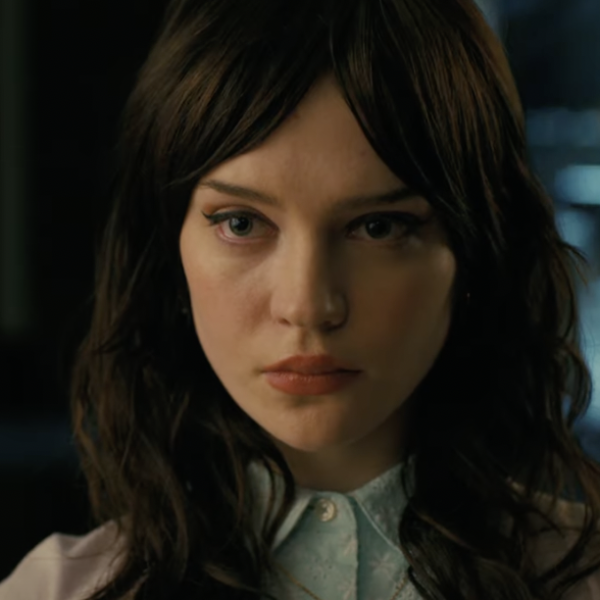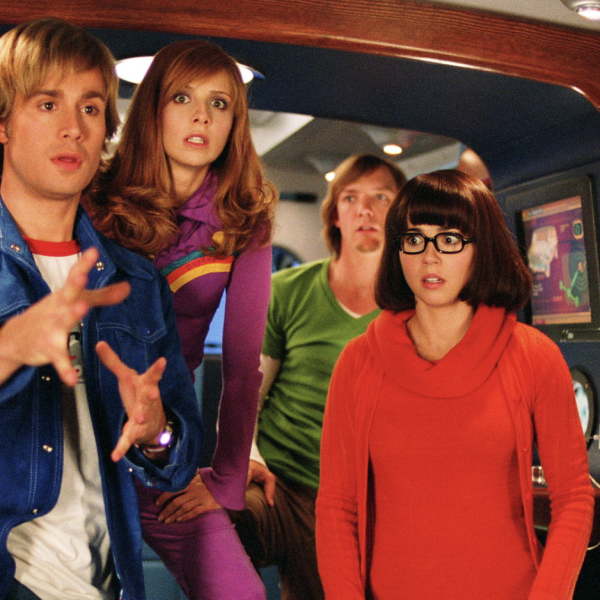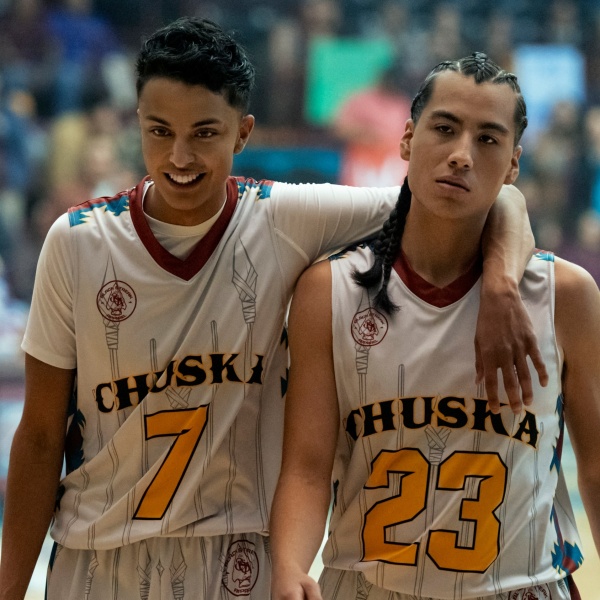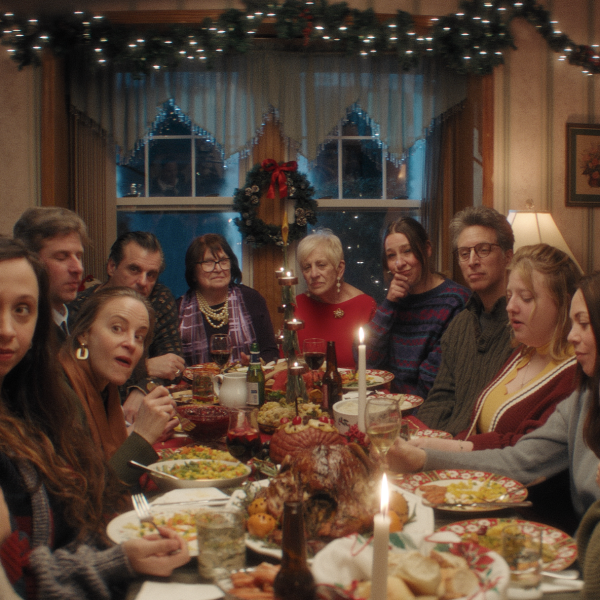It says a lot about Julianne Moore’s talent that the film that won her an Oscar doesn’t even crack her a list of her top ten best.
After becoming a familiar face at the Academy Awards with four nominations between 1997 and 2002, Moore received her richly deserved Best Actress trophy for playing a woman with Alzheimer’s disease in 2014’s “Still Alice.” Moore is predictably excellent in that movie, hitting all the right notes over the course of its tearjerking 100-minute runtime. And although that prestige picture finally got her the gold at the ceremony, there’s plenty more interesting, unique, and memorable works in her filmography to celebrate.
The child of a military family and a theater student at Boston University, Moore began her career winning a Daytime Emmy for her work on the soap opera “As the World Turns” in 1988. A 1990 theater production of “Uncle Vanya” got her noticed by film auteur Robert Altman, and she was later cast in his 1993 ensemble film “Short Cuts.” The acclaim she received for “Short Cuts” helped her break out, and her first leading role in Todd Haynes’ mesmerizing 1995 psychological horror “Safe” helped establish Moore as a permanent fixture in prestige filmmaking. Aside from some minor forays into blockbusters like “The Lost World: Jurassic Park” and “The Hunger Games,” the actor has been most at home in intimate dramas and ensemble epics, like “Boogie Nights,” “The End of the Affair,” “A Single Man,” and way too many others to list. She’s returned work with Haynes several times, including “Far From Heaven,” “Wonderstruck,” and their latest, “May December.”
On screen, Moore can do anything; she’s been a porno actress in “Boogie Nights” and an eccentric artist in “The Big Lebowski.” But if there’s an archetype that’s most frequently appeared across her characters, it’s the housewife. Most of her famous roles — from “Safe” to “The Hours” to “The Kids Are All Right” — can be described as housewives, who often hide their dissatisfaction with their relationships and their lives from the people around them. Moore is adept at teasing the inner lives and idiosyncrasies of these women out, making them full, complex individuals that aren’t always worth rooting for but are always relatable. Her latest film with Haynes twists her common part inside out. As Gracie — a figure inspired by the notorious ’90s Mary Kay Letourneau case — in the hit Netflix melodrama “May December,” Moore plays a woman who has done terrible things, grooming a 13-year-old boy at 39 and marrying him before he leaves high school. It’s an unflattering part, but she commits to it fully, and if Gracie isn’t as easy to like as many of Moore’s other roles, she’s certainly a character that’s difficult to forget.
With Moore up for a Golden Globe for her work on “May December,” IndieWire is revisiting her past performances to determine what’s the best on an overall stellar resume. The films listed here are placed based on Moore’s performances rather than overall quality, and range from her first features in the ’80s all the way to now. Read on for our list of Julianne Moore’s 10 best performances, ranked from “worst” to best.
-
10. “The Kids Are All Right” (2010)

Image Credit: ©Focus Features/Courtesy Everett Collection Who Moore plays: Jules, a lesbian woman and the wife of Nicole (Annette Bening) with whom she is raising two kids. Complications ensue when their children contact the sperm donor their mothers used and invite him into their lives.
Why she’s great: “The Kids Are All Right” is best remembered for Bening’s excellent work as Nicole, but Moore’s Jules is the plot driver of the movie — pushing the action forward thanks to her buried resentments and complex bisexual identity. Moore makes her a lovable, slightly exasperating figure, one who wears her heart on her sleeve and frequently makes a mess of things in the process. And together, she and Bening summon all of the history that comes from decades of union, both the good and the ugly.
-
9. “Vanya on 42nd Street” (1994)

Image Credit: ©Sony Pictures/Courtesy Everett Collection Who Moore plays: In this filmed version of André Gregory’s early ’90s private workshop production of “Uncle Vanya,” Moore plays Yelena, the young, glamourous wife of elderly doctor Serebryakov and the object of desire for the title character (Wallace Shawn).
Why she’s great: Moore has done essentially zero stage work throughout her career, sticking purely to the screen. So it’s a thrill to see how good she is in that setting through “Vanya on 42nd Street,” standing out with her empathetic portrayal of Yelena, who harbors an unrequited desire for friend Astrov (Larry Pine). For her performance, she won the Boston Society of Film Critics’ Award for Best Actress.
-
8. “May December” (2023)

Image Credit: Courtesy of Netflix Who Moore plays: Gracie, the chipper 59-year-old wife of the much younger Joe in Todd Haynes’ melodrama. Their unconventional union has a much more disturbing origin story: Gracie went to jail for grooming Joe when he was 13 back in the ’90s, and the two have since stayed together and married despite social scrutiny. The pair’s tabloid notoriety becomes the subject of a new independent film, and the two agree to let the star Elizabeth Berry (Natalie Portman) shadow their family for a week.
Why she’s great: The chatter on “May December” has mainly focused on Portman’s career-best work and Charles Melton’s breakout performance. This says a lot about how good they are, because Moore is still excellent in the role of Gracie, embodying a certain strand of delusional, self-victimizing white womanhood. Her character seems at first like a bit of a cartoon, between the sugary-sweet demeanor and the heavy lisp she puts on. But Moore finds something truly unsettling in Gracie’s willful ignorance at the horrors of her actions, and teases out a disturbing streak of manipulation without making it obvious. It’s Moore at her most hatable, which makes it some of her best work.
-
7. “The Big Lebowski” (1998)

Image Credit: ©GramercyPictures/Courtesy Everett Collection Who Moore plays: Maude, the pretentious, artistic, flinty daughter to the titular Big Lebowski, and the sort-of love interest for Jeff Bridges’ The Dude.
Why she’s great: As you can probably tell by this list, Moore doesn’t do a ton of comedy. But the Coen brothers’ classic film proves she has the chops to pull the genre off. She’s hilarious in “The Big Lebowski,” playing Maude’s eccentric, ridiculous nature completely straight and making for a wonderful foil to Bridges’ slacker protagonist. And the iconic bowling dance number proves she’s not afraid to get a little silly when she needs to.
-
6. “The Hours” (2002)

Image Credit: ©Paramount/Courtesy Everett Collection Who Moore plays: Stephen Daldry’s adaptation of Michael Cunningham’s 1999 novel focuses on the lives of three women across different time periods, who are connected by Virginia Woolf’s influential novel “Mrs. Dalloway.” Moore plays 1951 housewife Laura, whose dissatisfaction with her life prompts her to explore her sexuality with neighbor Kitty (Toni Collette).
Why she’s great: Moore picked up her fourth Oscar nomination for her work in “The Hours,” and although she didn’t win, her work in the movie is a standout. The housewife role is one Moore plays time and time again on film (she played a very similar part in “Far From Heaven” that same year), but she still finds new shades in Laura and her particular brand of dissatisfaction, rendering her struggles with her sexuality vividly.
-
5. “Boogie Nights” (1997)

Image Credit: ©New Line Cinema/Courtesy Everett Collection Who Moore plays: Amber Waves, a porn actress working in the 1970s and one of the lead figures in Paul Thomas Anderson’s epic story about the height of the porn industry.
Why she’s great: Moore picked up her first Oscar nomination for her work on “Boogie Nights,” and it proved well-deserved. She’s a highlight of the film, mixing a bit of grit with clear vulnerability, and smoothly navigating the odd mother-son relationship Amber develops with her co-star Dirk (Mark Wahlberg). In most contexts, their relationship could be creepy, but Moore finds a way to make it sweet.
-
4. “Short Cuts” (1993)

Image Credit: ©Fine Line Features/Courtesy Everett Collection Who Moore plays: In Robert Altman’s ensemble film adaptation of several Raymond Carver short stories, Moore plays Marian, the wife of doctor Ralph (Matthew Modine)
Why she’s great: “Short Cuts” was Moore’s first major film role, and she stars alongside several other established actors like Modine, Jennifer Jason Leigh, Frances McDormand, and Lily Tomlin. You wouldn’t know it just from watching though; as the spunky Marian, Moore is an obvious standout, showing a commanding presence and keen eye for her character’s specificities. Many of her future roles would explore similar themes, but her work in “Short Cuts” proved she had the juice from the jump.
-
3. “Magnolia” (1999)

Image Credit: ©New Line Cinema/courtesy Everett / Everett Collection Who Moore plays: Linda, one of the many players in Paul Thomas Anderson’s epic story of the intertwined lives of several San Fernando Valley inhabitants. The morphine-addicted trophy wife of quiz show producer Earl (Jason Robards), Linda married the man for money but comes to love him when he ends up on his deathbed from cancer.
Why she’s great: As the troubled Linda, Moore is at her most vulnerable. Although she only really gets one major showcase scene — where Linda tries to get herself taken out of her husband’s will in response to her guilt over his death — she knocks it out of the park with her raw, committed work.
-
2. “Far From Heaven” (2002)

Image Credit: Courtesy Everett Collection Who she plays: In Todd Haynes’ tribute to Douglas Sirk melodramas of the ’50s, Moore takes on the role of picture-perfect ’50s housewife Cathy Whitaker, whose lovely family life falls apart completely when she discovers her husband (Dennis Quaid) is having affairs with men. In the wake of this revelation, she begins an emotional affair of her own, with Black gardener Raymond (Dennis Haysbert).
Why she’s great: The “Far From Heaven” pastiche could easily tip into insincerity and corniness if it didn’t have such a committed lead in its center. Moore fully lives up to it, nailing the style of acting of Sirk’s lead heroines like Jane Wyman without coming across as a faded copy. She’s heartbreaking, earnest, and restrained while still delivering on the melodrama needed to make the movie so ravishing.
-
1. “Safe” (1995)

Image Credit: ©Sony Pictures/Courtesy Everett Collection Who Moore plays: Carol, an average, somewhat superficial housewife whose placid existence is disrupted when she develops sudden and inexplicable allergies to common household chemicals.
Why she’s great: A Todd Haynes film had to top this list; Moore is never better than when she’s working with her most frequent collaborator. But their first film together still stands as their best: a weird, shapeshifting, and frightening story about ennui and suburban rot. Moore is sadly sympathetic as the meek, clearly unhappy Carol, and tracks her rapid physical and mental decline with sharp accuracy. It’s superbly chilly work.
